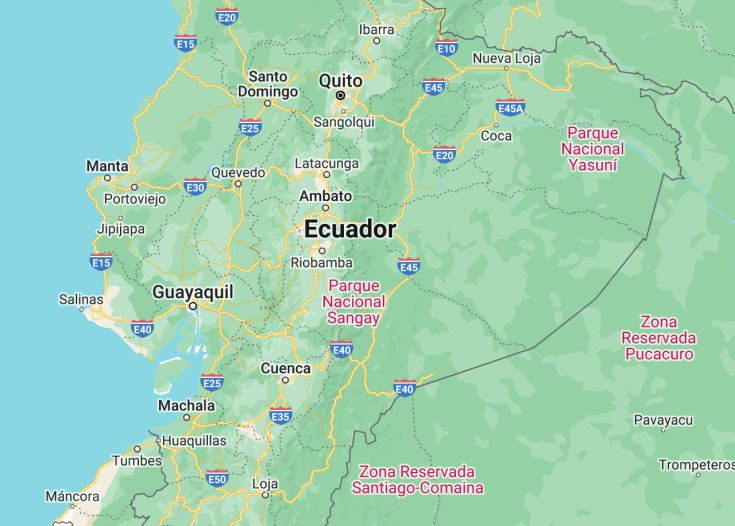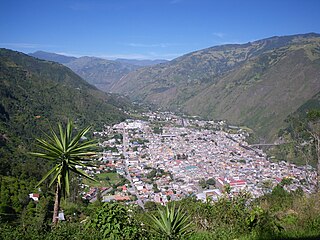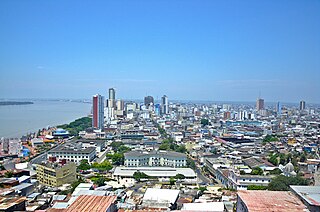Ecuador, a country located in South America, offers a diverse range of attractions for travelers. From its stunning landscapes, such as the Galapagos Islands and the Amazon Rainforest, to its rich cultural heritage evidenced in its historic cities like Quito, Ecuador has something for everyone. With its warm climate and friendly locals, Ecuador is a must-visit destination for nature enthusiasts, history buffs, and adventure seekers alike.
When visiting Ecuador, be sure to pack sunscreen and bug repellent as you may spend a lot of time outdoors.
Spend a few days in Otavalo, home to the largest indigenous market in South America, where you can buy handmade crafts and traditional textiles.
Ecuador: A South American Gem
| Capital | Quito |
| Time in Ecuador | GMT-5 |
| Language spoken | Spanish |
| Population | 17,755,810 (World Bank, 2021) |
| Religion | Roman Catholic (90.4%) Protestant (6.1%) Other (2.6%) |
| Currency | United States Dollar (USD, US$) |
| Airports | Mariscal Sucre International Airport José Joaquín de Olmedo International Airport Seymour Airport |
Ecuador, a nation that carries the weight and wonder of both its history and diverse landscapes, is strategically nestled on the northwest corner of South America. Its name, which translates to “Equator”, hints at its geographical significance. The ancient Incan Empire, with its profound influence and opulent history, once graced this land, leaving behind architectural marvels and a legacy interwoven with indigenous cultures. After Spanish conquest in the 16th century, Ecuador underwent a transformative period, eventually achieving independence in the early 19th century. Today, its rich tapestry comprises of colonial towns, Andean highlands, Amazon rainforests, and the world-renowned Galápagos Islands, making Ecuador an epitome of both historical profundity and natural splendor.
Where is Ecuador located?
Ecuador is situated on the western coast of South America, bordered by Colombia to the north and Peru to the south and east. It is known for its stunning Andean mountain range and its access to the Pacific Ocean.
What is Ecuador famous for?
Ecuador is famous for its remarkable Galapagos Islands, which played a vital role in Charles Darwin’s formulation of the theory of evolution. The islands are a UNESCO World Heritage site and offer visitors the chance to encounter unique wildlife species found nowhere else on earth. Ecuador is also known for its impressive Amazon Rainforest, magnificent volcanoes, and vibrant indigenous cultures.
History
10,000 BCE-1460 CE: Pre-Colonial Civilizations
The territory of present-day Ecuador was inhabited by various indigenous groups long before European contact. The earliest settlers were hunter-gatherers who reached the region around 10,000 BCE. Over time, complex societies such as the Valdivia, the Quitu, and the Cañari developed, establishing urban centers, trade networks, and unique artistic traditions.
1460-1534: The Incan Conquest
In the 15th century, the Inca Empire, led by Emperor Tupac Yupanqui, began its expansion into the region, eventually annexing the Kingdom of Quito. Under Incan rule, the region experienced significant infrastructural and cultural growth, especially with the establishment of the Royal Road, a vast Incan transportation network.
1534-1822: Spanish Colonization
Spanish conquistadors, led by Sebastián de Belalcázar and Francisco Pizarro, arrived in 1534. They quickly overthrew the Incan ruler Atahualpa and established the Spanish colony of the Royal Audience of Quito. During colonial rule, the Spanish introduced Catholicism, established Spanish law, and instituted a harsh encomienda system, which subjected indigenous people to forced labor. The city of Quito, due to its strategic location, emerged as an important administrative and religious center in Spanish South America.
1822-1830: Wars of Independence and Gran Colombia
Inspired by broader continental movements, Ecuadorians began to seek independence from Spanish rule in the early 19th century. The definitive battle for Ecuador’s independence took place in 1822 at Pichincha, where Antonio José de Sucre, ally of Simón Bolívar, secured victory. Following liberation, Ecuador joined the federation of Gran Colombia, alongside Colombia, Venezuela, and Panama.
1830-Present: Republic of Ecuador
By 1830, regional differences led to the dissolution of Gran Colombia, resulting in the establishment of the Republic of Ecuador. The country’s history thereafter was marked by political instability, with frequent shifts between conservative and liberal regimes. The 20th century saw territorial disputes, particularly with Peru, but also transformative moments like the liberal revolution of Eloy Alfaro, who initiated significant reforms including the separation of church and state. In recent decades, Ecuador has faced various challenges, from economic crises to political controversies. However, it has also seen strides in indigenous rights, especially after the recognition of Kichwa and Shuar as official languages alongside Spanish. The country adopted the U.S. dollar as its official currency in 2000, following a major financial crisis. Ecuador’s rich biodiversity, encompassing the Galápagos Islands and the Amazon Rainforest, has increasingly made it a focal point for global environmental concerns and conservation efforts.
Visit Ecuador
What to see and do in Ecuador
Ecuador offers a diverse range of attractions and activities for visitors to enjoy. Here are some of the highlights:
- Visit the historic city of Quito, with its colonial architecture and UNESCO World Heritage sites.
- Explore the Galapagos Islands, known for their unique wildlife and stunning natural beauty.
- Hike through the Ecuadorian Andes and discover picturesque landscapes, including volcanoes and waterfalls.
- Experience the vibrant indigenous cultures of Ecuador by visiting local markets and participating in traditional ceremonies.
- Discover the Amazon Rainforest and observe its rich biodiversity, including rare species of plants and animals.
- Relax on the beautiful beaches of the Ecuadorian coastline and indulge in water sports such as surfing and snorkeling.
Events in Ecuador
Ecuador hosts a variety of events throughout the year, showcasing its rich culture and traditions. Some of the notable events include:
- Carnival (February/March): A vibrant and colorful festival celebrated across the country with parades, music, dancing, and water fights.
- Inti Raymi (June): A celebration of the Inca sun god, Inti, featuring traditional dances, music, and rituals.
- Independence Day (August 10): Commemorating Ecuador’s independence from Spanish rule, this day is marked with parades, concerts, and fireworks.
- Day of the Dead (November 2): A solemn day to remember and honor deceased loved ones, with elaborate altars, traditional food, and processions.
Best time to visit Ecuador
The best time to visit Ecuador depends on the specific regions and activities you plan to engage in. The country experiences different climates due to its geographical diversity. The Galapagos Islands are best visited from June to December when the weather is cooler and the sea is calmer for wildlife watching. The Andean highlands are pleasant year-round, although May to September is generally drier and offers clearer views of the mountains. The Amazon Rainforest can be visited at any time, but the dry season from June to November allows for easier exploration and wildlife spotting.
Is Ecuador worth visiting?
Ecuador is definitely worth visiting for those seeking a unique and diverse travel experience. The country offers a combination of natural beauty, cultural heritage, and adventure. From the stunning Galapagos Islands to the picturesque Andean landscapes and the vibrant markets of Quito, there is something for every type of traveler. However, it is important to be aware of the economic challenges and social issues that Ecuador faces, as well as the need to respect and preserve the environment and indigenous cultures. Overall, Ecuador provides a fascinating destination for exploration and discovery.


















